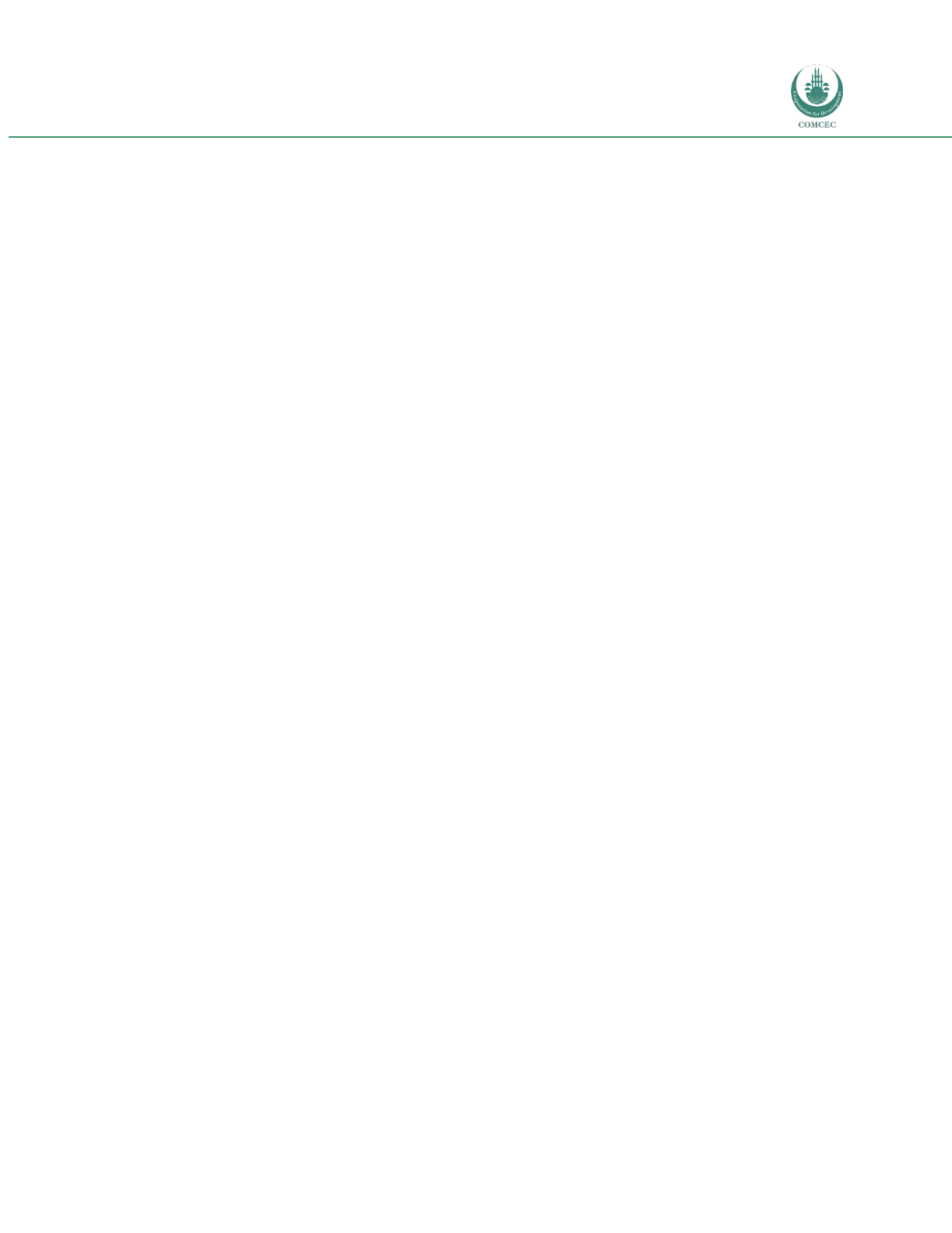

Strengthening the Compliance of the OIC Member States
to International Standards
89
obtain a certificate from EOS attesting the conformity of a sample to its proper standard specification.
EOS testing laboratories are divided into four general departments with specialized laboratories:
•
The General Department for Testing Chemical Products and Construction Materials
•
The General Department for Testing Food Products
•
The General Department for Testing Engineering Products
•
The General Department for Testing Textile Products
Testing can also be performed upon the request of companies, for importers or exporters, and for other
government control authorities.
Conformity assessment in one of the main components of the ongoing cooperation in the field of
international harmonization carried out by Egypt with technical and financial assistance from the EU.
International harmonization is part of a broader twinning project between European and Egyptian
quality institutions (EGAC, EOS, and Metrology Institute). An ongoing project is concerned with raising
the quality of these institutions and enabling the EGAC to accredit EOS for conformity assessment
according to European and international standards.
Reviews carried out in light of the preparation for the ACCA show that most of the testing and
conformity assessment is carried out by third parties, while manufacturers periodically submit samples
for testing at the Quality Institute for extra assurance. The main reason is the limited testing capabilities
of the Quality Institute. In the light of the ACCA, technical and financial assistance to the institute is
essential for upgrading its conformity assessment capacity. Future plans also include the revision of the
existing laws to issue a new law on conformity assessment of industrial and consumer products that
includes elements of the EU regulations.
6.2.2.2
Harmonization
EOS, in collaboration with the Industrial Modernization Center (IMC), has worked on the harmonization
of domestic standards with international standards systems to increase competitiveness of Egyptian
products and boost exports. In 2010, all standards (8,500 at that time) were harmonized (OECD, 2010).
In this regard, the harmonization process is based on ISO/IEC Guides 21-1:2005 and 21-2:2005,
European Directives (CEN and CENELEC), and Egypt’s TBT Agreement commitment. Standardization is
also adapted to the regional development of standards (AIDMO), and foreign standards like ANSI, ASTM,
and JIS. International standards are usually adopted by EOS, given a national number, translated to
Arabic and published by EOS as a domestic standard.
















